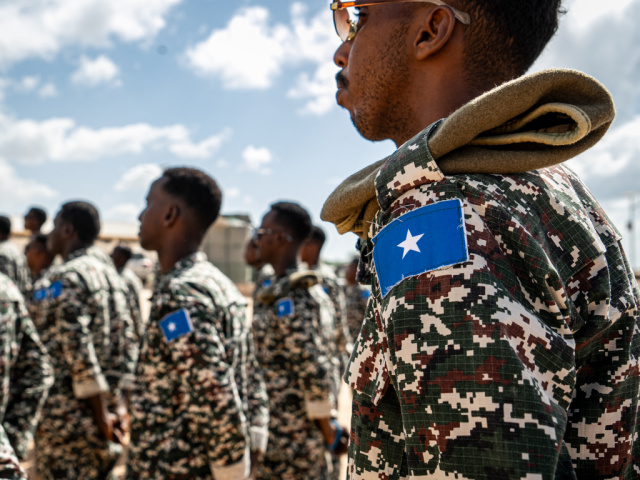Denmark, Greece, Pakistan, Panama, and Somalia were elected by the U.N. General Assembly on Thursday to serve two-year terms on the U.N. Security Council (UNSC), taking over five rotating “non-permanent” membership slots from Ecuador, Japan, Malta, Switzerland, and Mozambique.
Voice of America News (VOA) found Thursday’s election “lackluster,” a hollow ritual formality devoid of excitement, as the five new non-permanent members ran as the unopposed representatives of their respective geographic regions. Their victory in the “election” was determined in advance, behind closed doors, although in theory, they could have lost enough votes from disapproving members of the General Assembly to fall below the threshold needed for victory.
None of the five nations suffered that ignominious fate. Denmark won the most General Assembly votes with 184, while even deeply troubled Somalia scored 179. Countries need 129 votes for confirmation.
The five new nonpermanent members will take their seats at UNSC on January 1. Richard Gowan, U.N. director for the International Crisis Group, told VOA the most promising addition to the Security Council is Denmark.
“The Nordic countries have a long history of effective and skillful U.N. diplomacy,” Gowan said. “I think there’s an expectation that Denmark is going to take on a lot of responsibilities, a lot of difficult files, and there’s an assumption that just as a Scandinavian nation, it knows how to make the Security Council work.”
At the other end of the spectrum, VOA noted it was unusual for a country like Somalia that has both foreign troops and U.N. officials on the ground, trying to hold the country together under assault from the Islamist terrorists of al-Shabaab, to take a seat on the Security Council.
“We are fully prepared to bring our distinct perspectives, experiences and solutions to the global arena, making a meaningful contribution to the work of the U.N. Security Council in the maintenance of international peace and security,” Somali Foreign Minister Ahmed Moallin Fiqi promised after the General Assembly voted on the new members.
Africa’s Nation hoped UNSC membership would mark a “turnaround” for Somalia, which was under a U.N. arms embargo from 1992 until last December. The embargo was imposed at a time when Somalia was in the grip of a bloody struggle for power waged by various warlords.
When the sanctions were lifted, the U.N. recognized “progress made in weapons and ammunition management” by Somalia, as well as the Somali government’s need to acquire better weapons to fight al-Shabaab.
Nation noted Somalia “will not be able to make decisions on substantive issues such as who to sanction, or which sanctions to lift,” but UNSC membership “gives it closer contacts to lobby for favorable decisions for itself and Africa.”
“It is both symbolic and strong diplomatic status for Somalia to appear among the Security Council members and this will help Somalia to have a better access for member nations,” Virginia-based Somalia analyst Abdiqafar Abdi Wardhere, said.
“Somalia has come a long way over the past three decades on its path to peace, prosperity, and security. Election to a seat on the Security Council is recognition of that commendable progress,” James Swan, the U.N. Secretary-General’s acting representative for Somalia, said.
Pakistan is also a controversial choice, as it is politically unstable, has a dubious human rights record, and is fighting a deadly Islamist insurgency of its own.
“Uncontested elections for seats on the Security Council, or any other U.N. body, make a mockery of the word ‘election,’” Louis Charbonneau of Human Rights Watch said on Thursday.
“Member countries should give themselves a choice so governments responsible for serious human rights abuses can be rejected,” Charbonneau said.
Pakistani U.N. Ambassador Munir Akram said his country has always been a major contributor of troops to U.N. peacekeeping missions and will push for more active peacekeeping deployments from its seat on the Security Council.
“We need to evolve the nature of U.N. peacekeeping to be able to address the kind of conflicts that we are facing today in many parts of the world,” Akram said. “The U.N. needs to have a more proactive role in trying to enforce peace in some of these conflicts.”
UNSC has five permanent members with veto power – the U.S., UK, China, France, and Russia – plus ten nonpermanent members selected from different regions who rotate in two groups of five. The other five current nonpermanent members are Algeria, Guyana, Sierra Leone, Slovenia, and South Korea. They are scheduled to be replaced in 2025.
